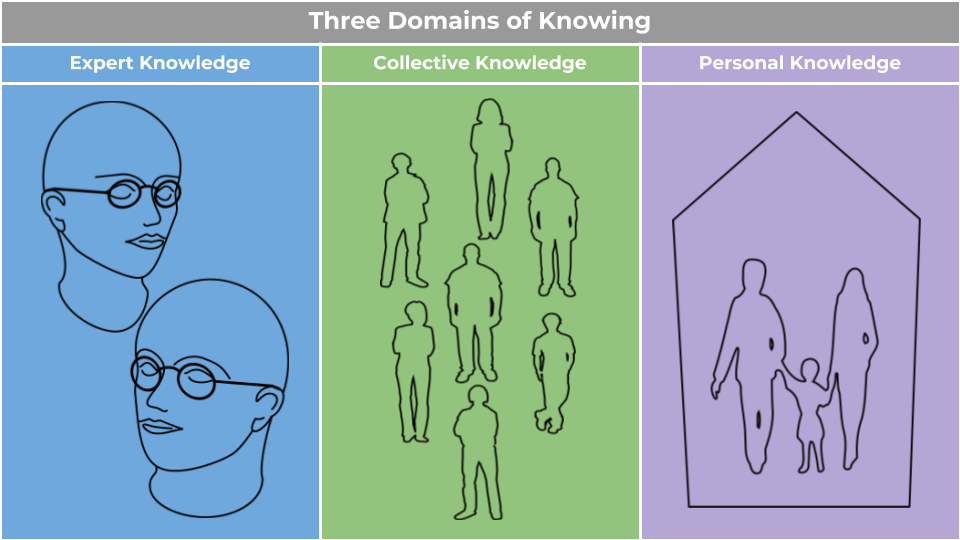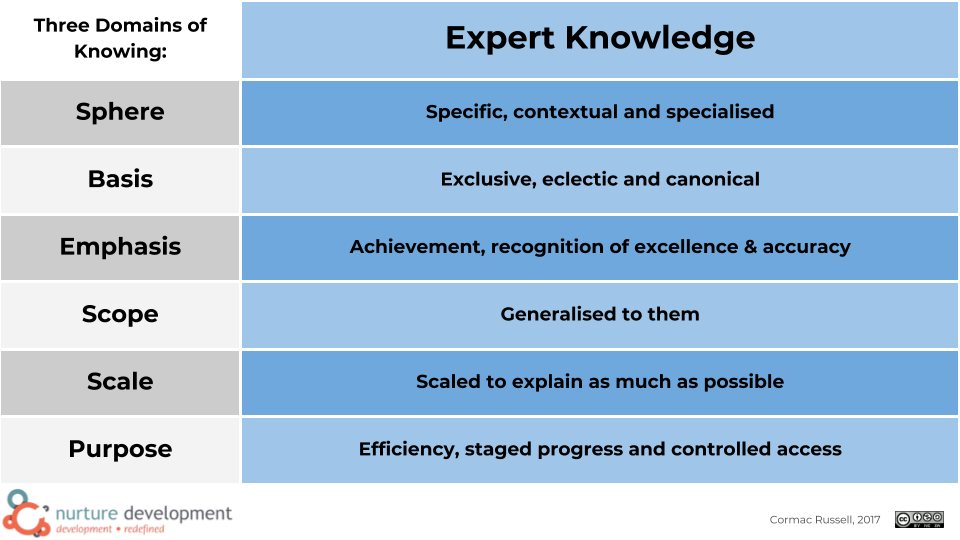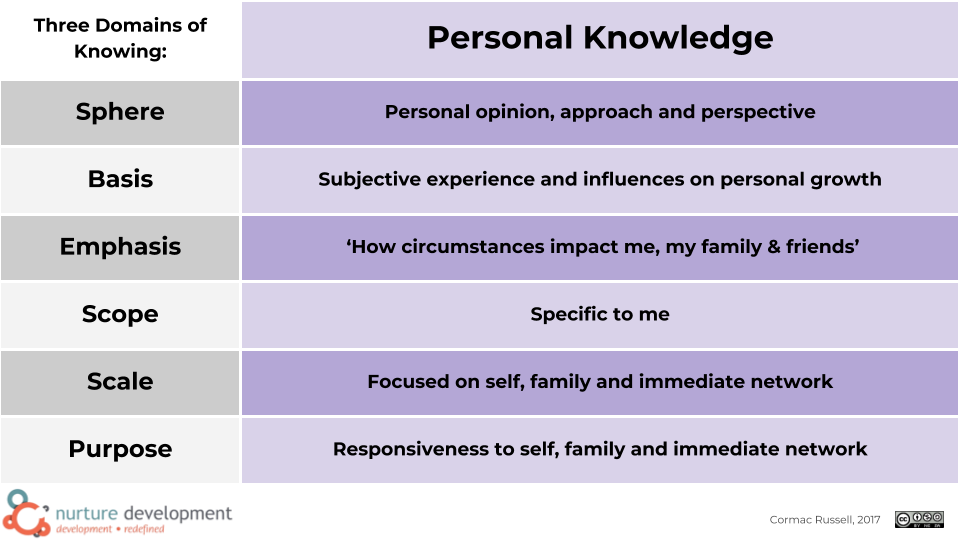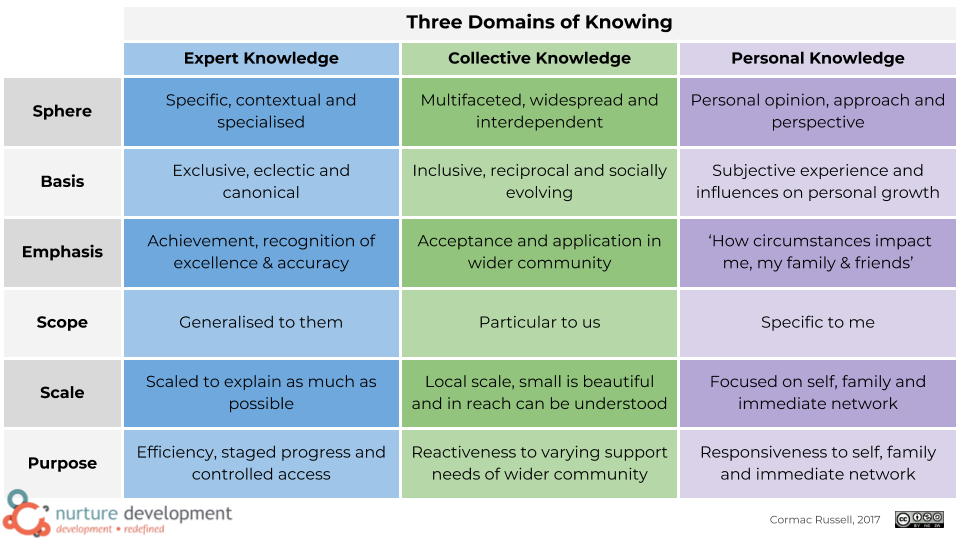
Three Domains of Knowing
In last week’s blog we shared the idea that there are three ways of knowing. The post triggered a lot of positive reaction and a number of people have asked me to expand further. So this is the first of five consecutive posts that aim to do just that.
Here’s a more detailed description of the three domains:
Expert knowing:
An expert according to Niels Bohr, is a person “who has made all the mistakes which can be made, in a narrow field.” I would add, and has learned from them sufficiently that they can transfer that learning to other people and situations, in a way that is well received and acted upon.

Personal knowing:
“The desire to reach for the stars is ambitious. The desire to reach hearts is wise.” – Maya Angelou. An apt alternative word for ‘personal knowledge’, is wisdom. Personal Knowledge is ‘personal’ because one chooses to be personally accountable for how it is understood, in an embodied, affective sense; it is knowledge because it has come from the journeys of others as a gift to us, and after we give it a little polish with the insights from our own journey we happily pass it on to fellow travellers.

Collective knowing:
Collective knowing emerges as a result of three or more citizens gathering in association to solve problems that have no scientific solutions and do not bow to the assumed authority of experts or kings. Collective knowing is the result therefore of people who gather to address problems by firstly defining them together, then agreeing a solution together, then taking action together. The net result of those three steps is better public judgement and deeper collective knowing, “we know how to act now”. Collective knowing underpins culture.

Last week I proposed that when something goes awry across these domains, instead of seeing it as a data or authority issue we’d benefit from viewing it as a relational challenge. Or, even better, a relational opportunity. Of course to make sense of the relationship, we need to acknowledge power differentials and that there are different ways of knowing things across and within these domains.
 Making sense of these three ways of knowing and how we can get better proportionality between them will be the subject of the next four blogs in this five part blog series.
Making sense of these three ways of knowing and how we can get better proportionality between them will be the subject of the next four blogs in this five part blog series.
I really hope you join in on the conversation in this, as we muse out loud about the difference and complementarity between:
- Personal knowledge
- Public judgements
- Professional knowledge and expertise
Cormac Russell
